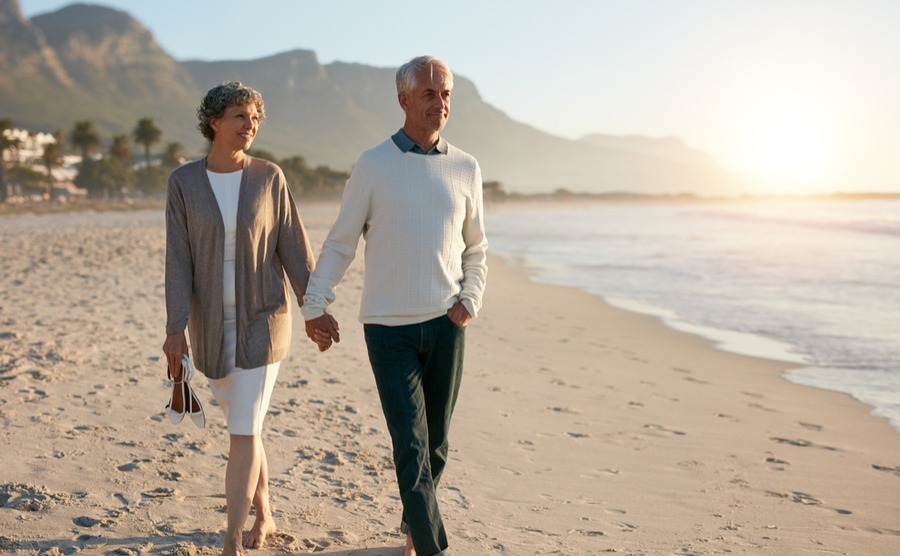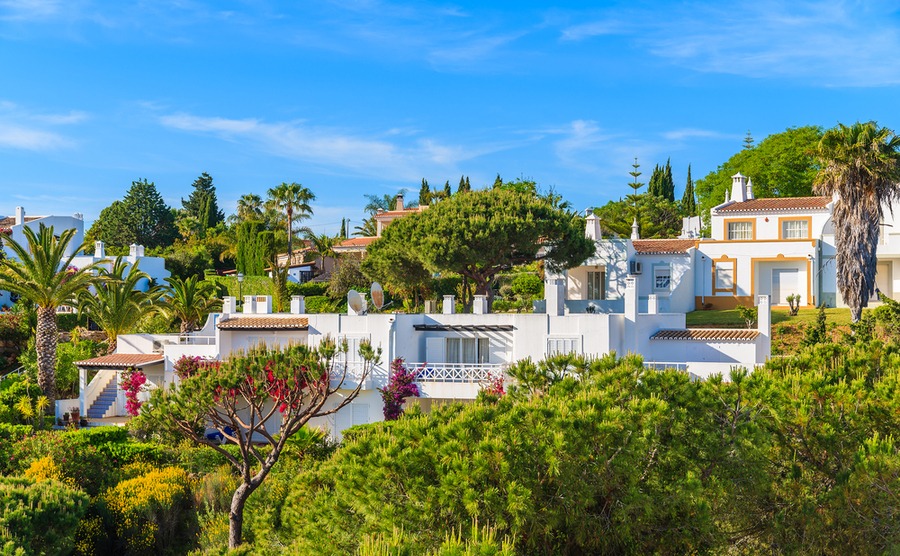How would you enjoy spending every winter in Portugal, while renting out your holiday home in the summer months for a hefty profit? If that sounds like the best of both worlds, here is how to do it. And a few tips on where to start looking in the Algarve.
Portugal, especially the southern Algarve, is an enticing place in the winter months. Winter temperatures in the Algarve are often around the 20-degree mark. So it’s little wonder that buying a winter holiday home in Portugal is so tempting for many of us.

How does spending every winter in the warmth of the Algarve sound?
Spending a three or four month period away from the cold each year is a popular option for many people. The Algarve is home to “winter residents” from the UK, Ireland, Scandinavia and elsewhere. The off-season Algarve is quiet and laid-back. But it’s far from dead. While it’s important to remember that it is still winter, unbroken week-long spells of sunshine are far from rare. This makes T-shirts and flipflops suitable attire – at least until the sun goes down!
There’s another huge benefit owning a winter holiday home in Portugal. If you plan to use it predominantly over the winter, you can rent it out during the lucrative summer months. If you do your calculations carefully, you could even find that this rental income goes most (or all) of the way to funding your winter bolthole.
If you’re spending long periods in Portugal you can save hassle and money by using a dedicated currency company. We recommend Smart Currency Exchange.
Find homes in Portugal via our property portal.
A Winter Holiday Home in Portugal: Practicalities
Spending winter in Portugal is very straightforward. Flights to Faro run year-round, which is especially handy if you’re buying a property in the eastern Algarve. While there are not quite so many in the winter, it’s generally easy and inexpensive to get to the country.
Once in the Algarve, you will find the people welcoming and the practicalities easy to deal with. While it’s obviously appreciated when you attempt to speak Portuguese, it’s not difficult to get by with mostly English. Most towns have established communities of overseas residents. These groups almost always include a contingent of people who spend the winter in the country.
There are a couple things it’s worth being aware of. The first is that while sunny days can be lovely and warm, winter nights in Portugal do get chilly. As local residents say, you can feel it in your bones! It’s worth giving some thought to the heating and insulation in any potential property. Reverse cycle air conditioning is widespread, but it’s not particularly effective for heating an entire property.
Secondly, be realistic if your experience of Portugal is exclusively around visiting in the busy season. It is definitely worth spending time in the Algarve in the winter before jumping in with both feet. An Algarve winter is relaxed and slow-paced, but the vibe is definitely different. You may, for example, find that your favourite restaurants are closed, or only open sporadically.
What to do in the Algarve in Winter
It’s incredible how different your winter existence can be in milder weather! While it’s rarely sunbathing weather, the beaches are still incredibly inviting. Best of all, they’re usually near-deserted. Having them almost to yourself on a warm winter day feels like an extreme luxury. It’s worth remembering you’re on the Atlantic, so you’d need to be very hardy to swim – but a paddle is never out of the question!
Golf courses and other sports facilities abound in the Algarve. Furthermore, in winter you’ll often discover special promotions that allow you to enjoy them for considerably less than normal.
Essentially that’s what having a winter holiday home in Portugal is all about – enjoying the Algarve at a time where everything is cheaper, quieter and more laid-back. You may find yourself not wanting to reveal the secret to too many people…

Homes in the Algarve, wonderful in summer or winter
Renting out your Holiday Home in Portugal
Rental property in the Algarve is usually in considerable demand during the summer months. During July and August, it’s not unusual for straightforward two-bedroom apartments to go for £800 to 1,200 per WEEK.
The calculations around this are pretty straightforward; If you can get a good level of occupancy, even just for the peak of summer, it can go a long way to meeting your mortgage payments and other expenses. There’s even potential for profit.
Obviously there are expenses and practicalities to consider. You’ll need to pay tax on your rental income for starters. You will also have to pay an individual or management company to handle cleans, checkins and problems. There’s also the costs of insurance for your holiday home and wear and tear to consider. Be sure to weigh all of this up before assuming you’re purchasing a gold mine!
Don’t spend any money on your move abroad until you’ve read The Currency Guide to Emigration, free to download.
Ensure you meet all of your legal obligations, the most crucial of which is having a rental licence for short-term lets. This is known as an Alojamento Local. Penalties for not having one can easily wipe out your rental income, and the authorities do check. As with most “red tape” matters in Portugal, obtaining the paperwork is actually straightforward if you know what to ask and who to ask for it. However, many expats choose to pay someone to handle all of this on their behalf – typically a sum in the region of €800 for the whole process.
Brexit Practicalities
At the time of writing, Brexit negotiations are ongoing, and nobody yet knows whether Britain will make a deal with the EU. This means there are some uncertainties for expats and potential overseas buyers.
Getting residency in Portugal is something you should consider if you plan to stay long-term. However, if you plan to buy a holiday home in Portugal to use for the winter months, you have nothing to fear. EU citizens staying in Portugal for more than 90 days has to get temporary residency in Portugal.
Furthermore, Portugal already has agreements with countries such as the US and Canada to allow visa-free stays of up to 90 days. As such, it seems incredibly unlikely that any Brexit outcome could seriously compromise a plan for a winter bolt-hole in Portugal.
You’ll find lots more information on settling into life in Portugal here. If you happen to be reading this from somewhere cold, perhaps next winter won’t have to feel quite the same.











